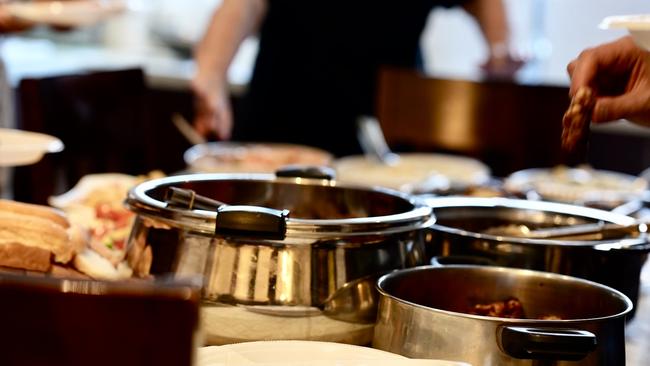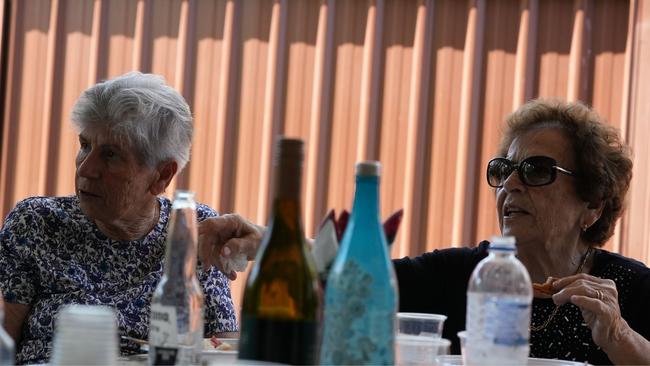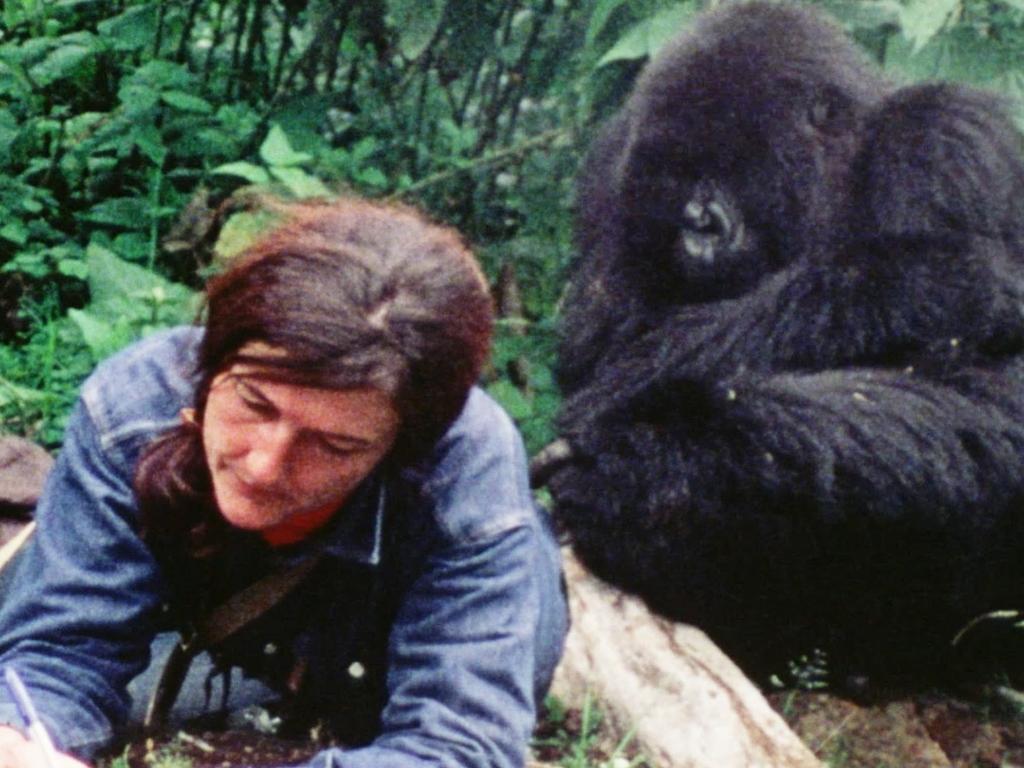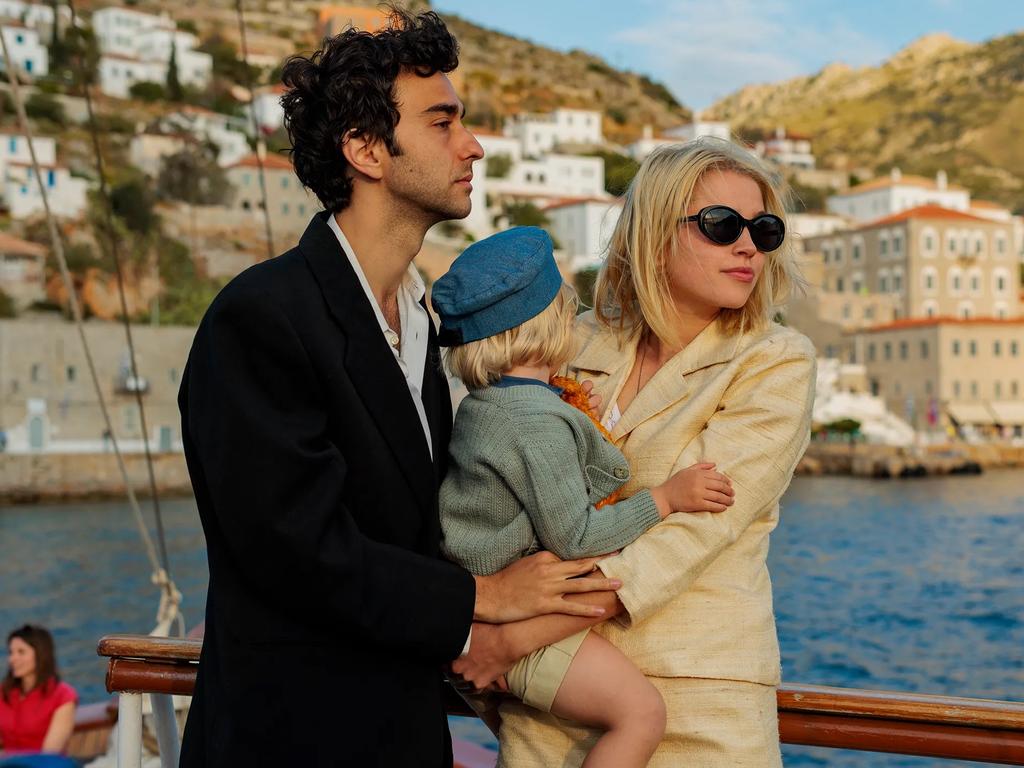How my Greek family’s traditions forced me to become a vegetarian
Greek families are known for overeating and over-exaggerating - but one fateful bite of the succulent, annual lamb roast would change my life forever.

Greek mythology is not resigned to ancient history – it is a truly modern concept. Ask anyone from the diaspora. Based on the metrics of what my family has taught me over the years, three things are considered fact, despite their origins in hyperbolised fiction:
Despite being largely sheltered from my family’s heritage, spending my childhood overseas where the American imagination of the Greek culture was slightly too evocative of the budget-blockbuster My Big Fat Greek Wedding, we annually attended Christmas in Australia to indulge in kefalotyri, tzatziki and ouzo.
γιατι δεν τρως
(Why aren’t you eating?)
It’s a blistering Christmas Eve in 2005. I’m eight years old and the sun over the Strathfield home of my mother’s parents threatens to melt the white plastic chairs and glistening clear tarp covering every upholstered furniture surface. In one corner, my Pappous sink a case of VBs, a hallmark of their Australian citizenship, with a torn deck of cards beside them because someone was “cheating” the entire game. In another, a legion of Yia Yias sporting second-hand designer label sunglasses fan themselves, bitching in unison about Queen Elizabeth stealing the most eligible Greek bachelor of their lifetime (Oh Philip!).
Home and Away has never been screened in this double-brick householdsurrounded by paved concrete– but a dodgy satellite roped to the roof streams Greece’s answer to that program 24/7. Vegemite is contraband and claiming our family are descendants of Troy or Cleopatra is encouraged (yes, she is “Greek”).
The men are in their uniforms of black loafers, knee-high socks and gold chains; the women model chestnut-dyed pompadours with enough hairspray to hold together the four generations of family surrounding them.
The dining table is covered in discarded walnut shells, lace doilies and faux flowers, with enough places set to still account for the family members we’ve lost over the years.
This year, as the only female child and therefore gentlest of the family, I reap the reward of looking after our new pet lamb, ensuring the cruel hands of my male cousins are kept far away from poking and prodding the sweet creature. I delight in brushing its fur, tying bows around the loose tufts of hair along its ears and have grown unreasonably attached ina few sweet days.
While typical Australian kids attended Carols in the Park at Christmas, I, unable to speak to the rest of the family that immigrated to the country four decades before my birth but still refused to learn English, communicated with my beloved pet in bleats and bellows, grateful that I had mastered the lyrics to Old MacDonald in kindergarten instead of attending Greek school like the others. The lamb and I would go for walks, fall asleep beside each other, even dive into the plastic shell-shaped kiddie pool, the only way to cool down that wasn’t an icy shot of ouzo kept in the freezer.
War stories roll out at dusk, when my grandfather laments the end of the Greek empire, likens our family’s achievements in goat farming to Alexander the Great’s conquests, and recalls his time in the army. (This seems heroic, but we find out years later he was the infantry’s chef.) Clutching the lamb in my arms, my eyelids are heavy from a day of smothering affection, cheeks raw from the ruthless pinches of adoring elders.
Exhausted, I fall asleep on top of Yia Yia’s handsewn quilt, beneath a needlepoint portrait of the Last Supper, ready to awaken to presents, a feast and my beloved pet lamb.
Καλά Χριστούγεννα
(Merry Christmas)


Only that doesn’t happen.
You see, once the joy of kissing each portrait of God in church, sharing a communion spoon with dozens of men aged 80 and up slobbering over it first, and having rose-scented oil rubbed into my forehead wears off, I expect to come home to open gifts on the freshly cut grass, my lamb friend by my side.
Running down the recently watered concrete, I choke on the plumes of smoke in the air – half from the charcoal spit roast languidly spinning, half from the Rothman Blue-fanatics puffing beside it.
A headless carcass is being doused in lemon juice and brushed with an olive oil-soaked bundle of rosemary, as my Pappou flashes his false-toothed smile and strips off a bit of skin with the tongs.
It’s the best bit of this unspecified meat – we all know it – so laden in fat and juices that it melts the moment it touches your mouth. Inhaling the flesh, I ask him:
που είναι το αρνί
(Where’s the lamb?)

He informs me that while I was sleeping, my pet cried so hard for its mother, they had to send him back to the farm.
I’m gutted, but I understand, and spend the rest of the long lunch weeping on my own mum’s lap, as I join the family in devouring every last body part of the roasted beast.
One of my Pappous consumes a broth topped with the hoofs and brain of the animal, while my uncles share the barbecued bones, sucking out the marrow.
My mum makes me the Greek equivalent of a sausage roll, shoving slow-roasted meat into a pillowy pita slathered with taramasalata and tomatoes straight from the garden.
Unlike the secret of Santa Claus, the family secret of our pet lamb is kept hidden from me well into my late childhood.
My older brother – accidentally drunk after sculling the Mediterranean moonshine our Pappou stores in orange juice containers – informs me at a Christmas lunch a few years later:
“You know we eat your pet lamb every year right?”
Thankfully, my grandparents are too old to run their annual abattoir in the backyard these days. And for the sake of their traditions and sanity, they don’t know that I have been a vegetarian ever since.




